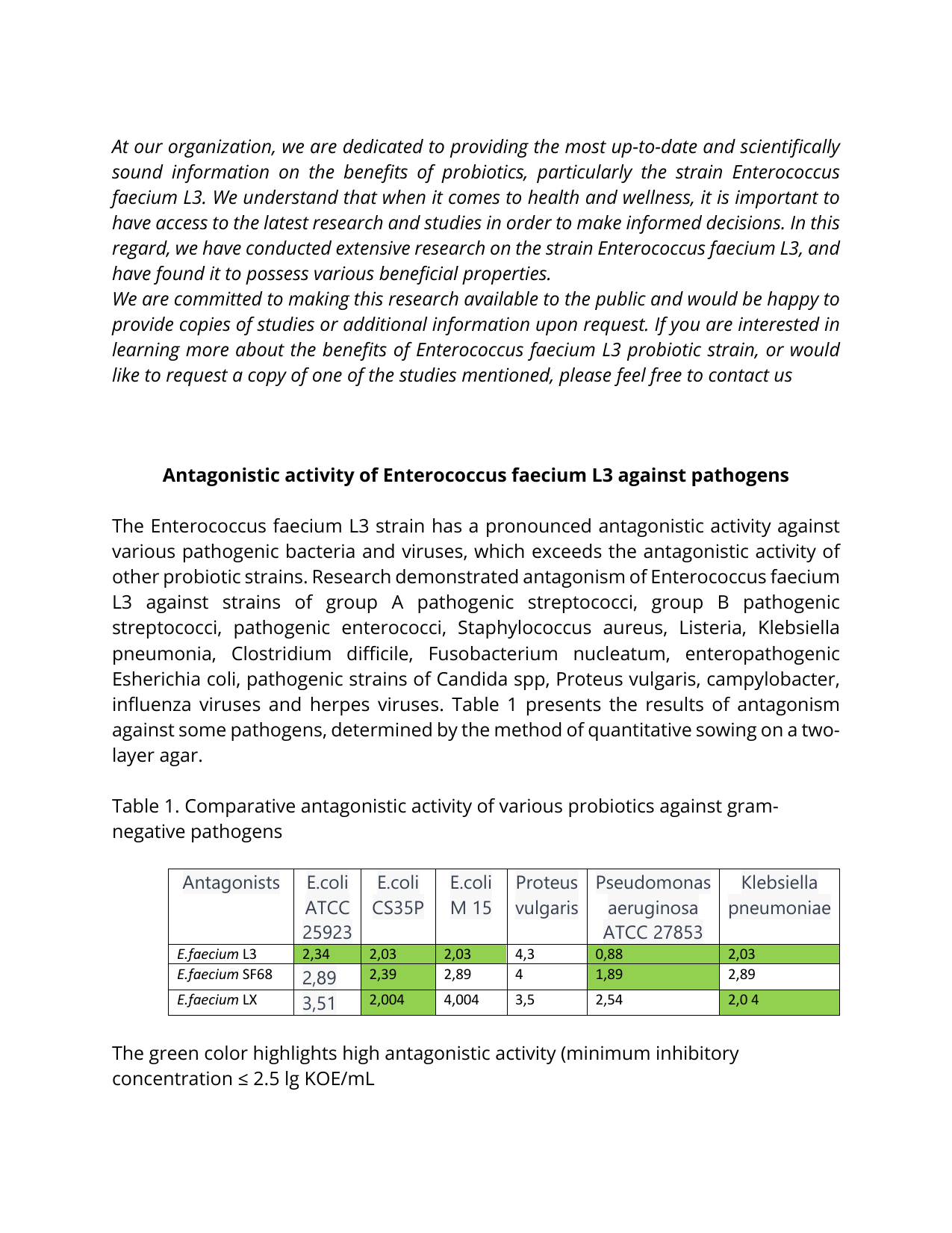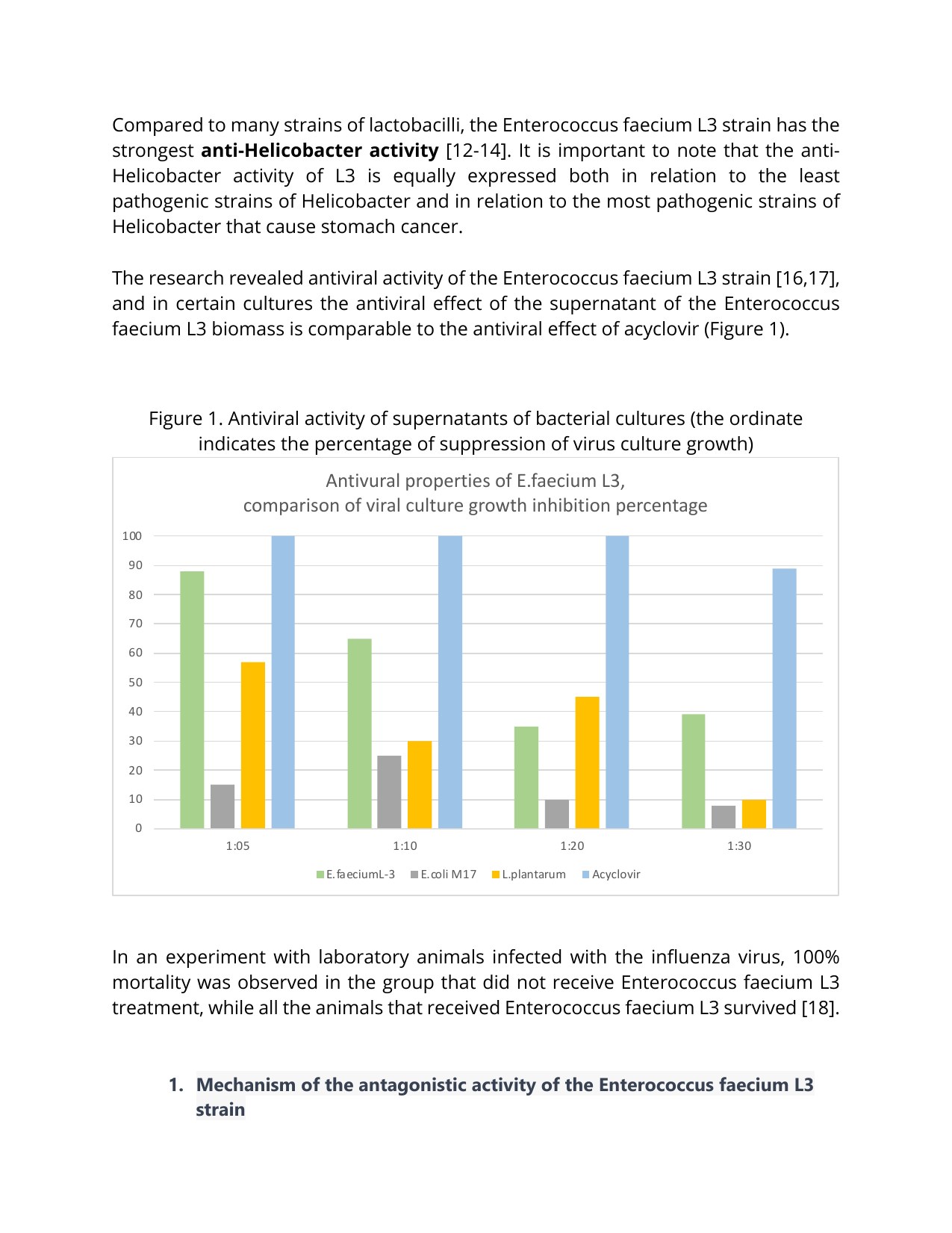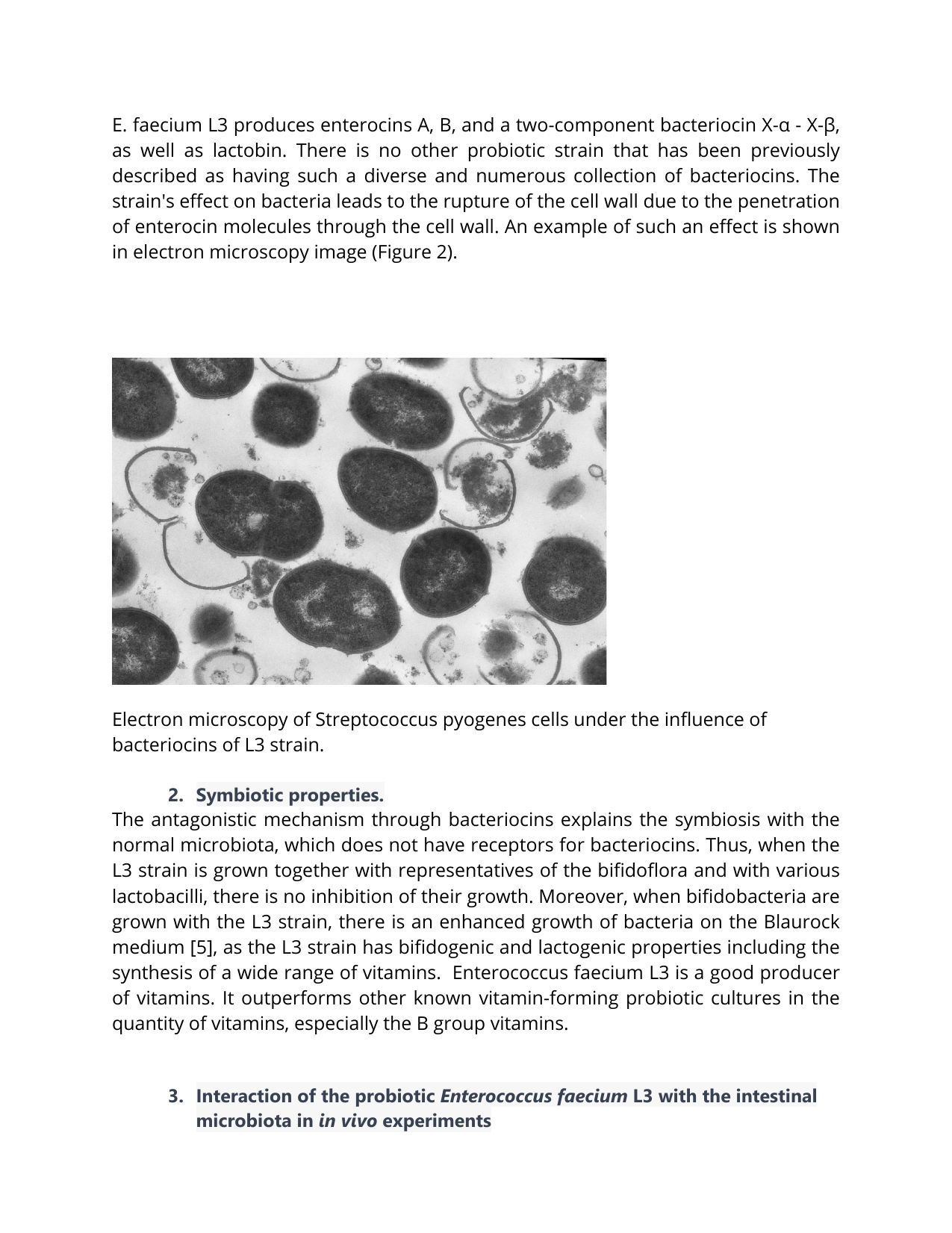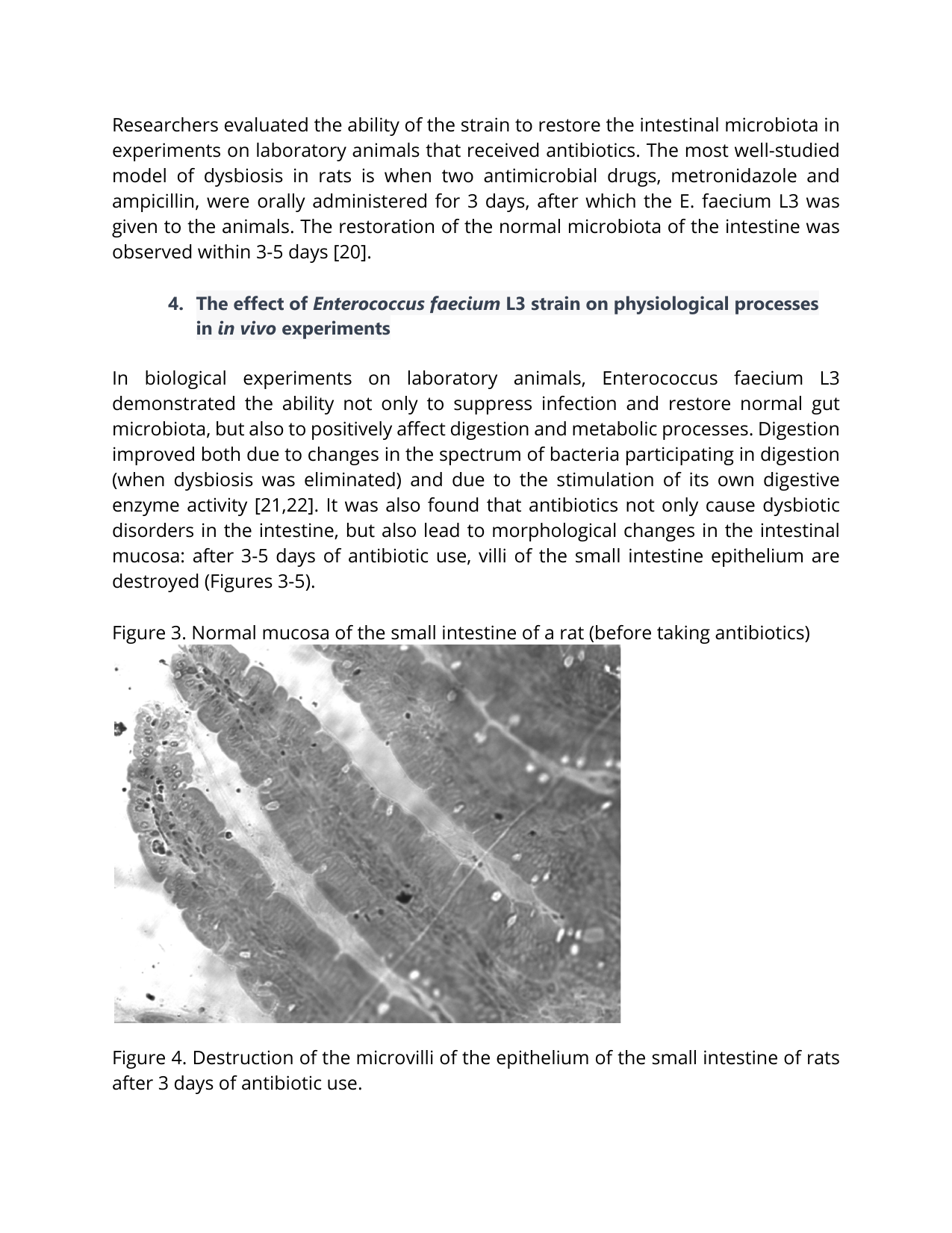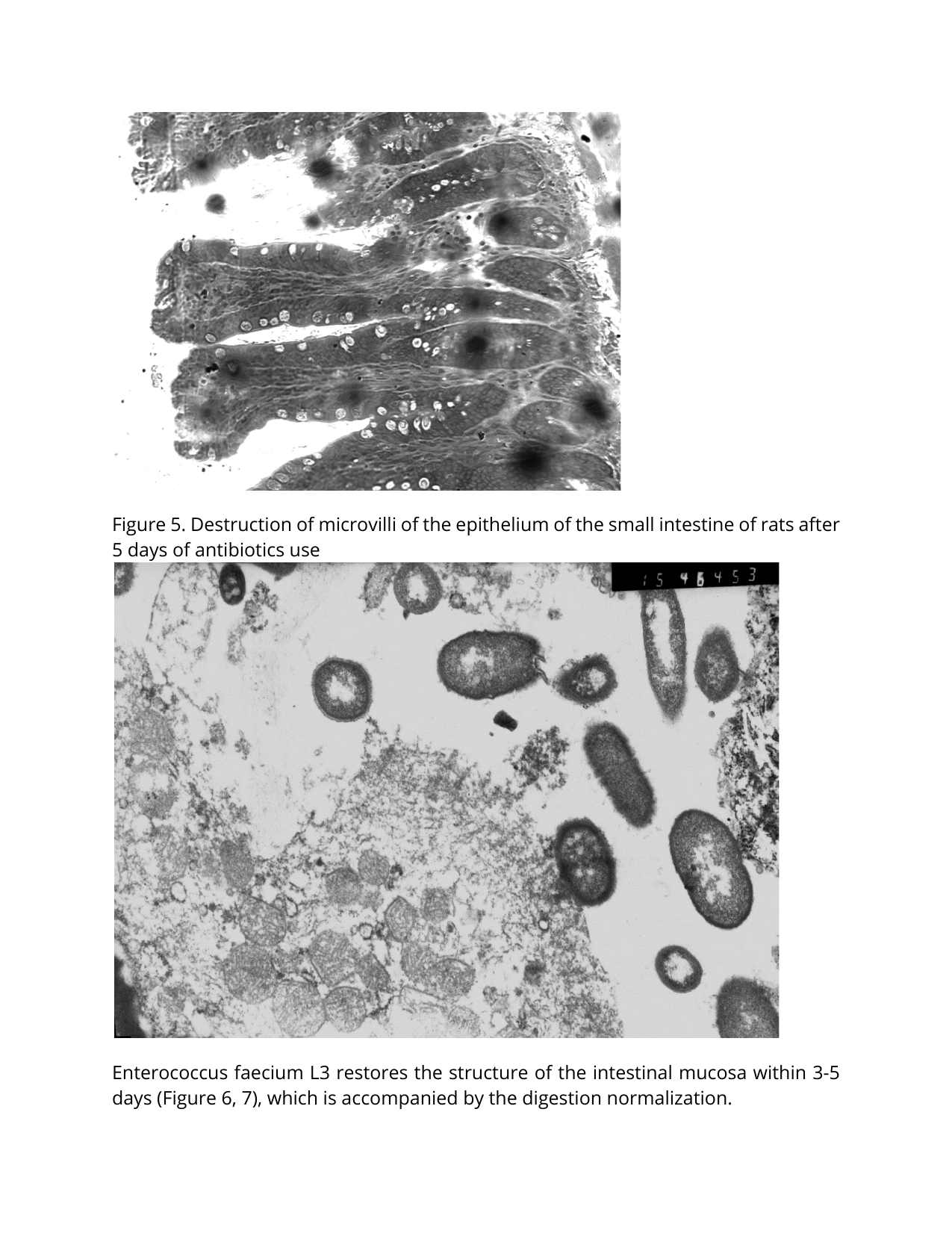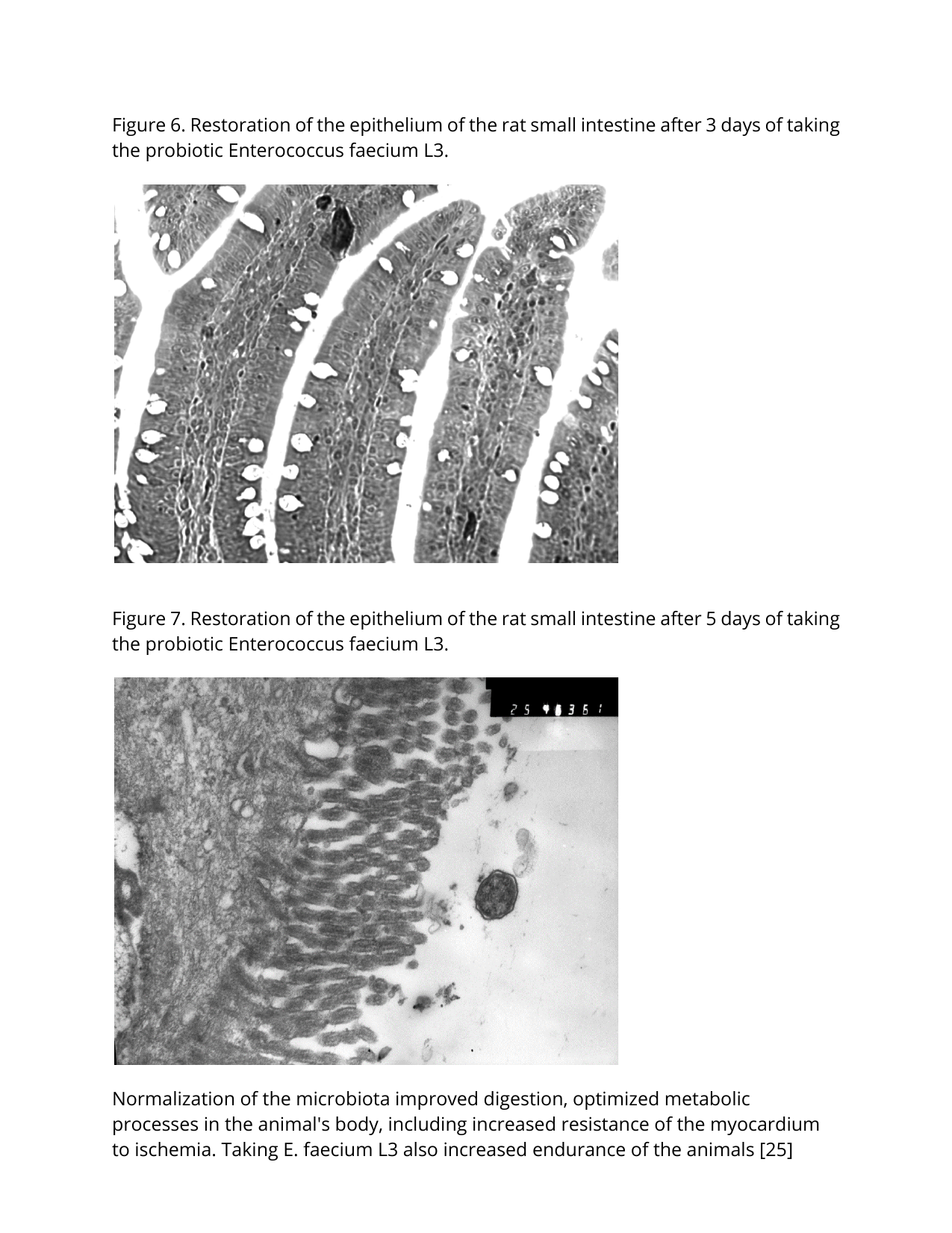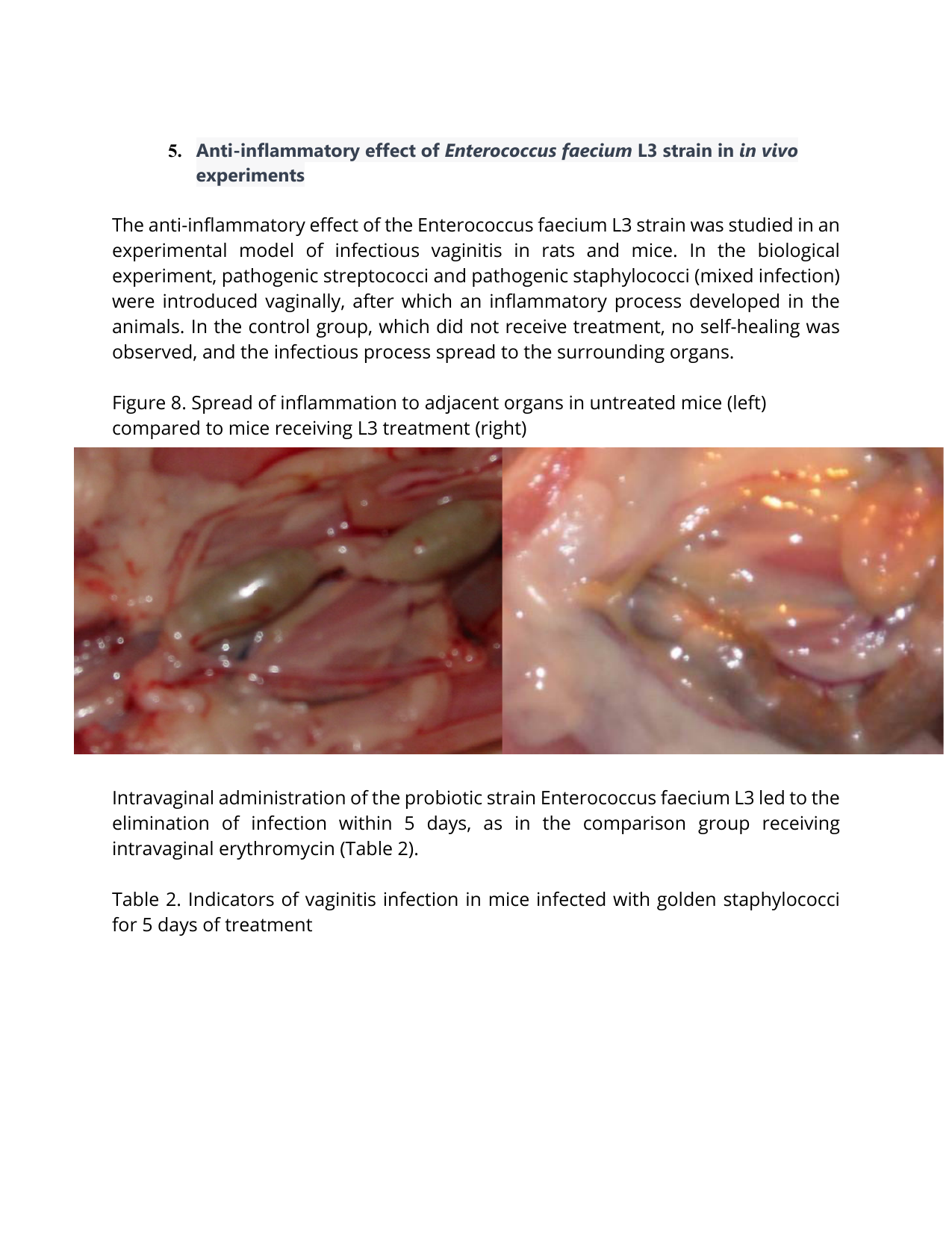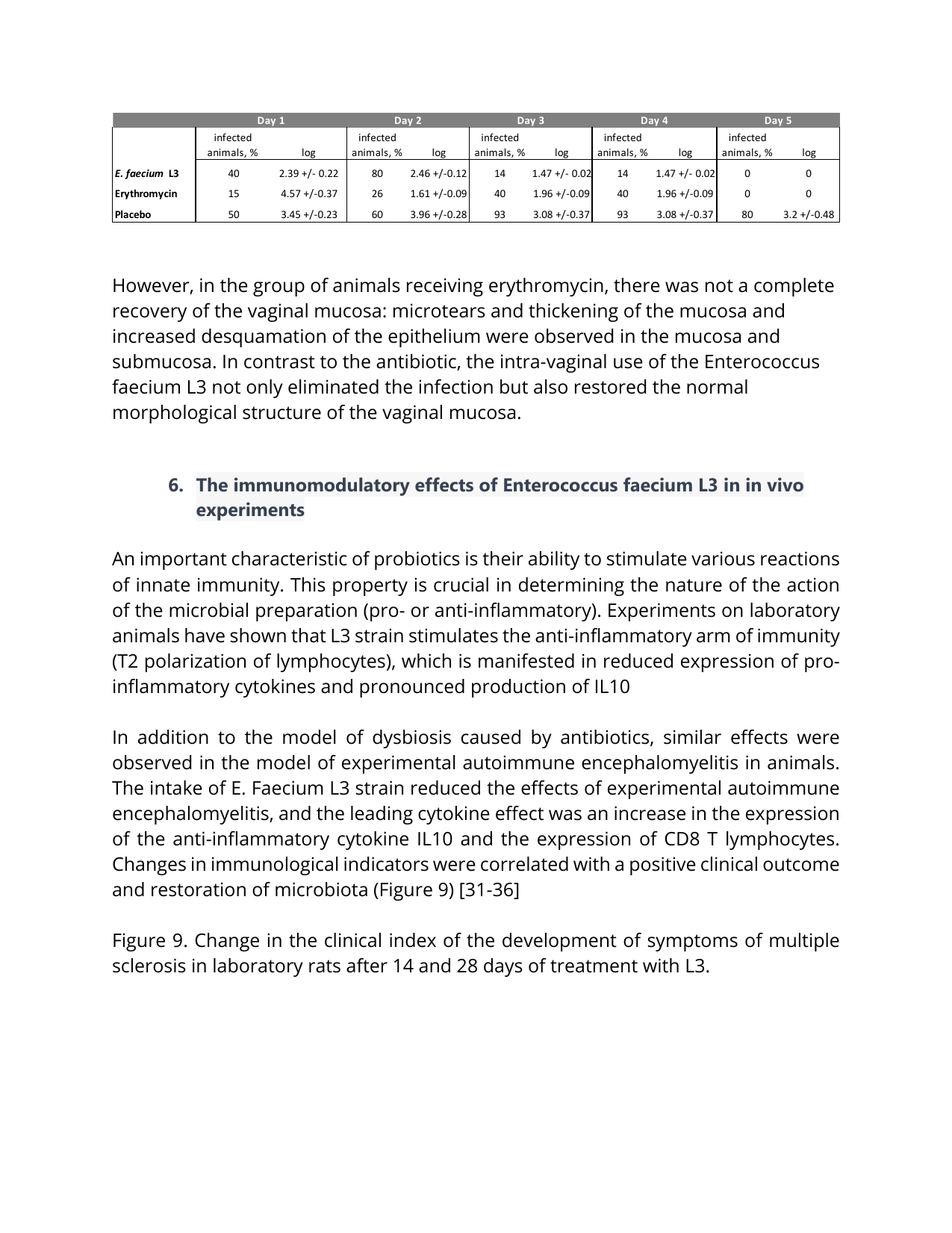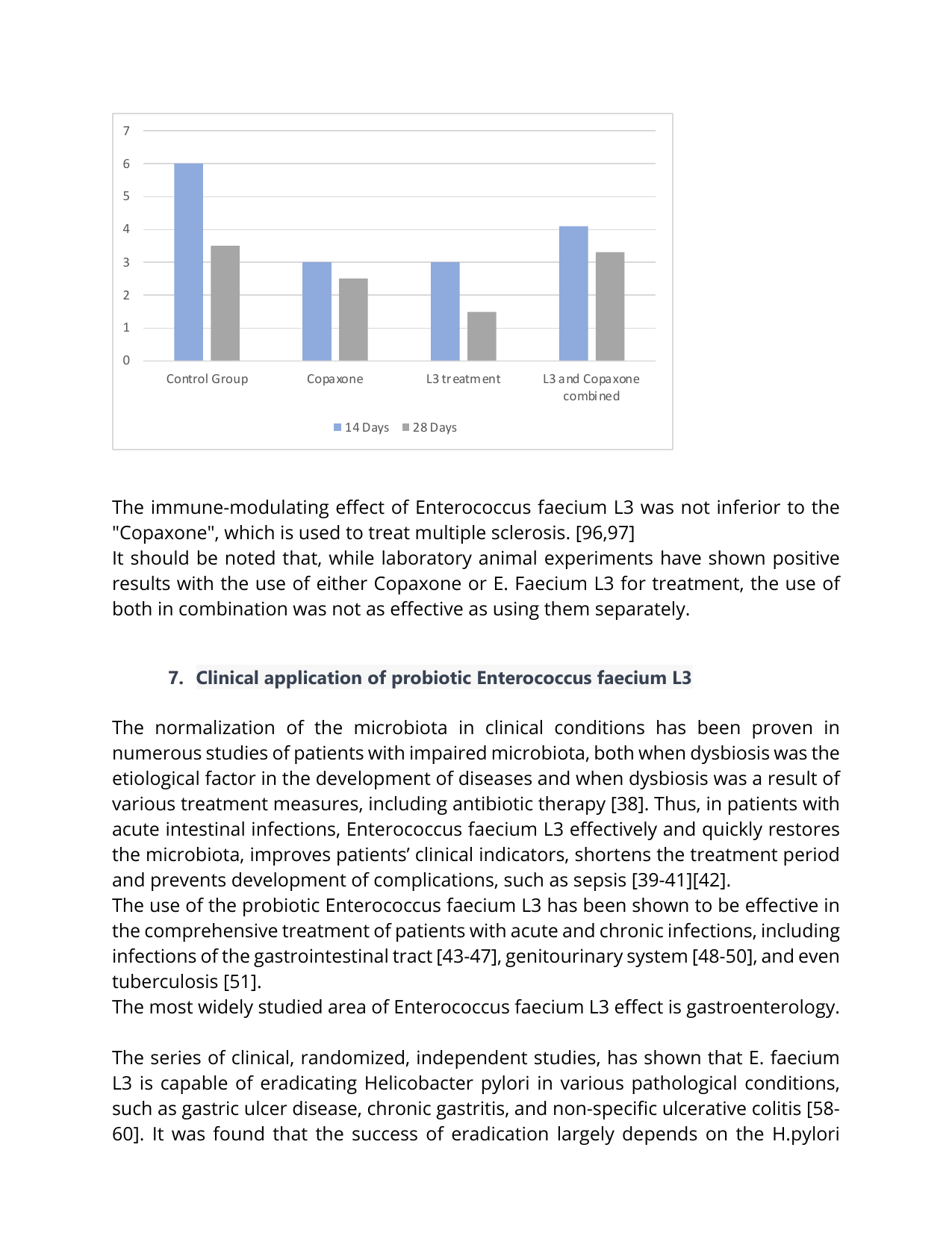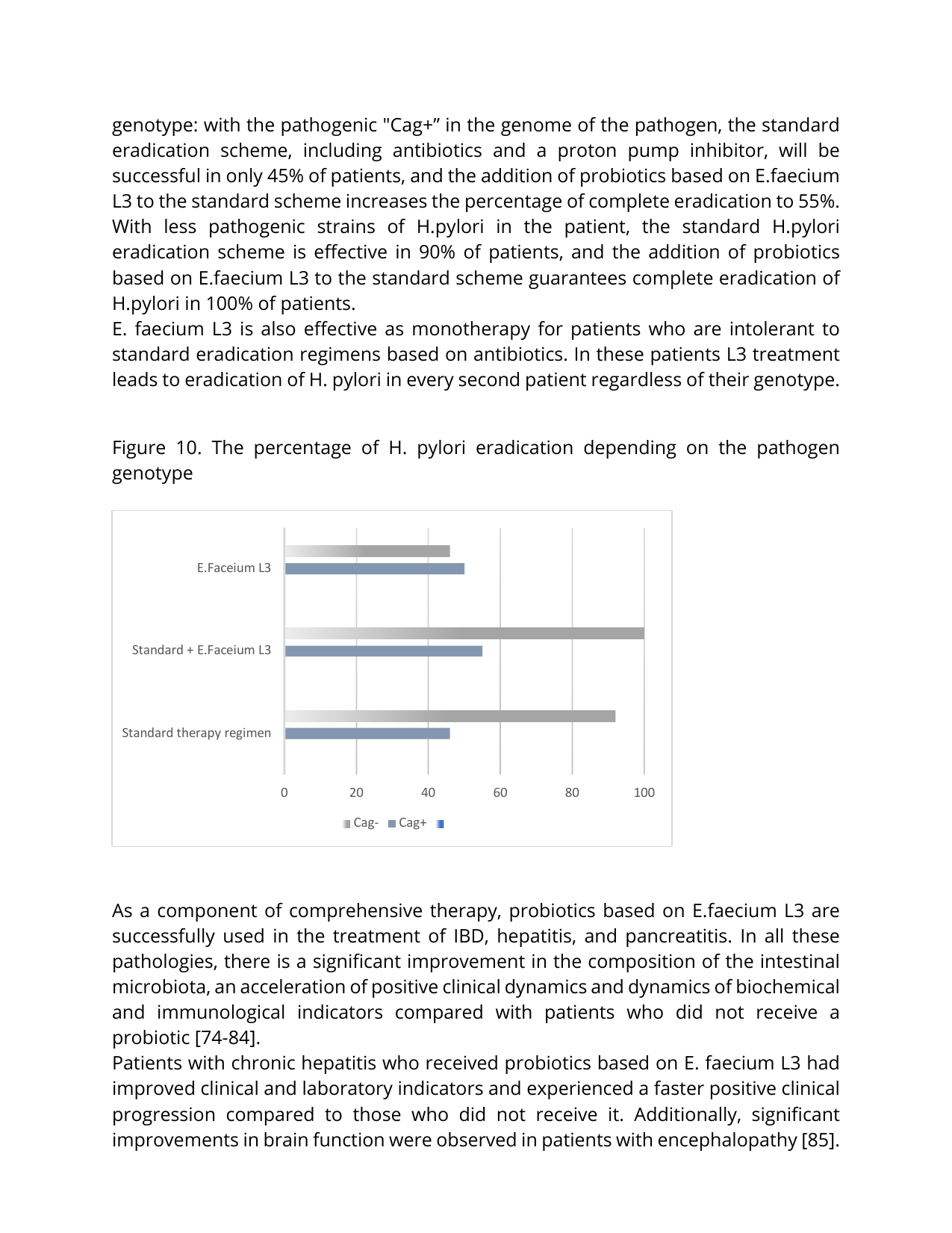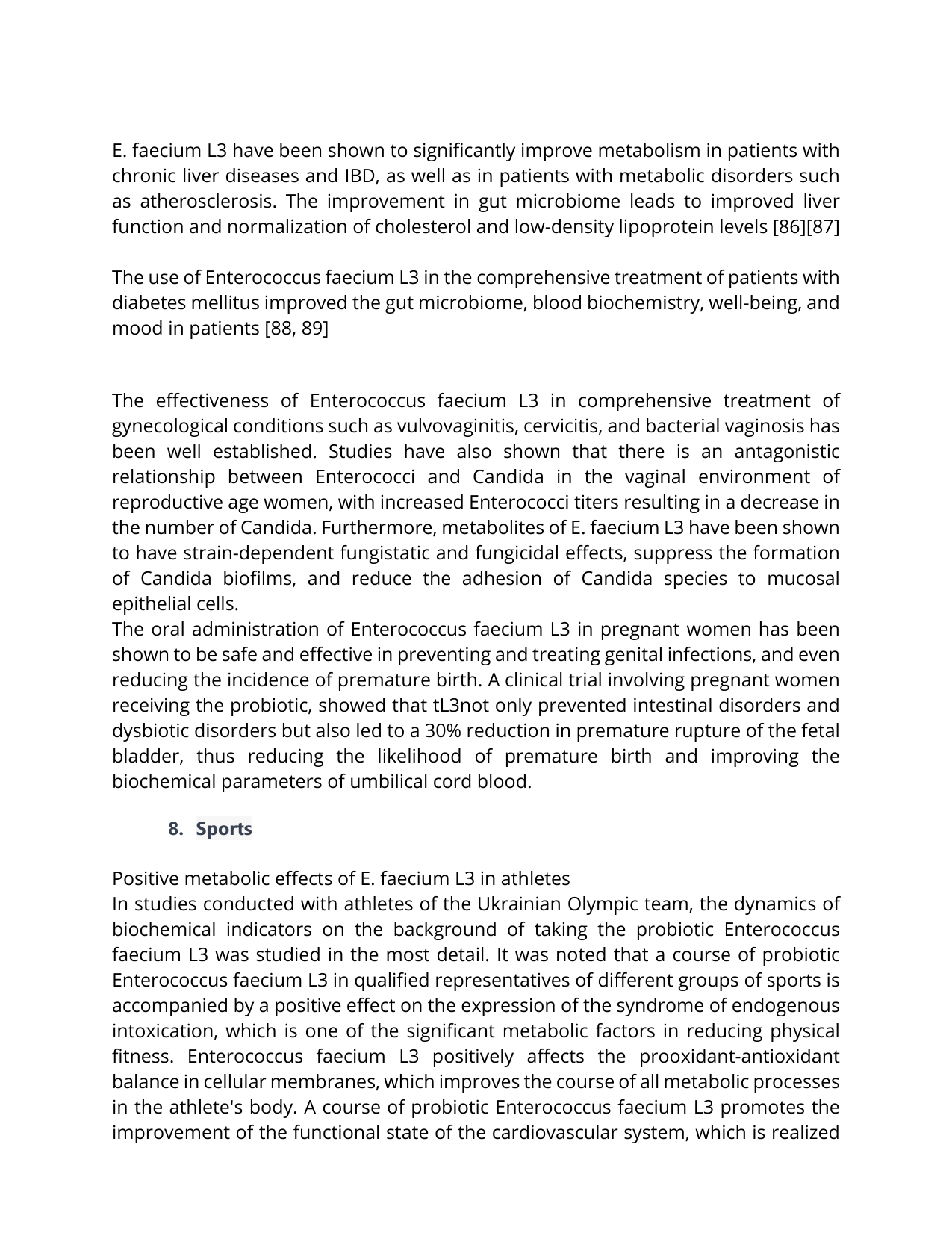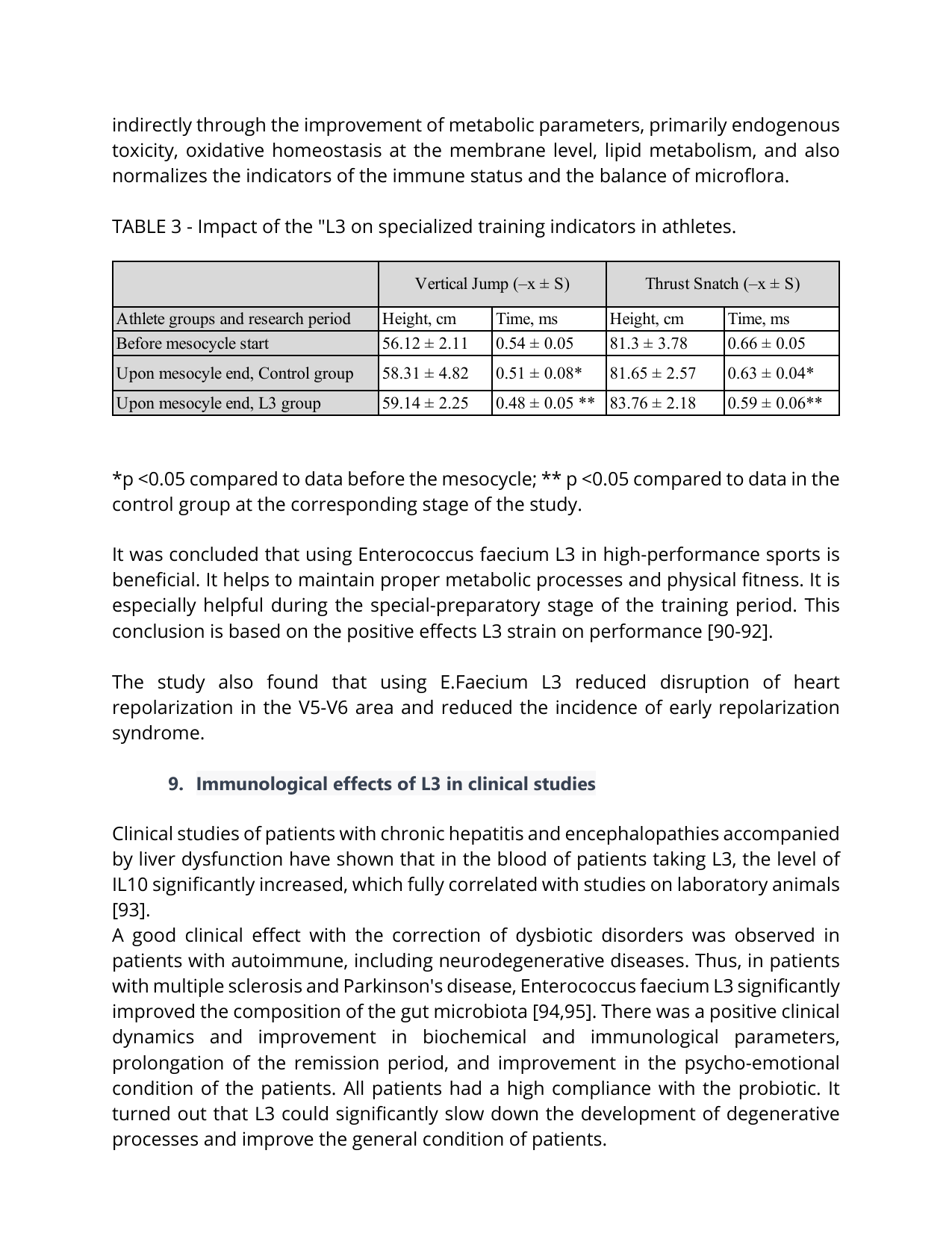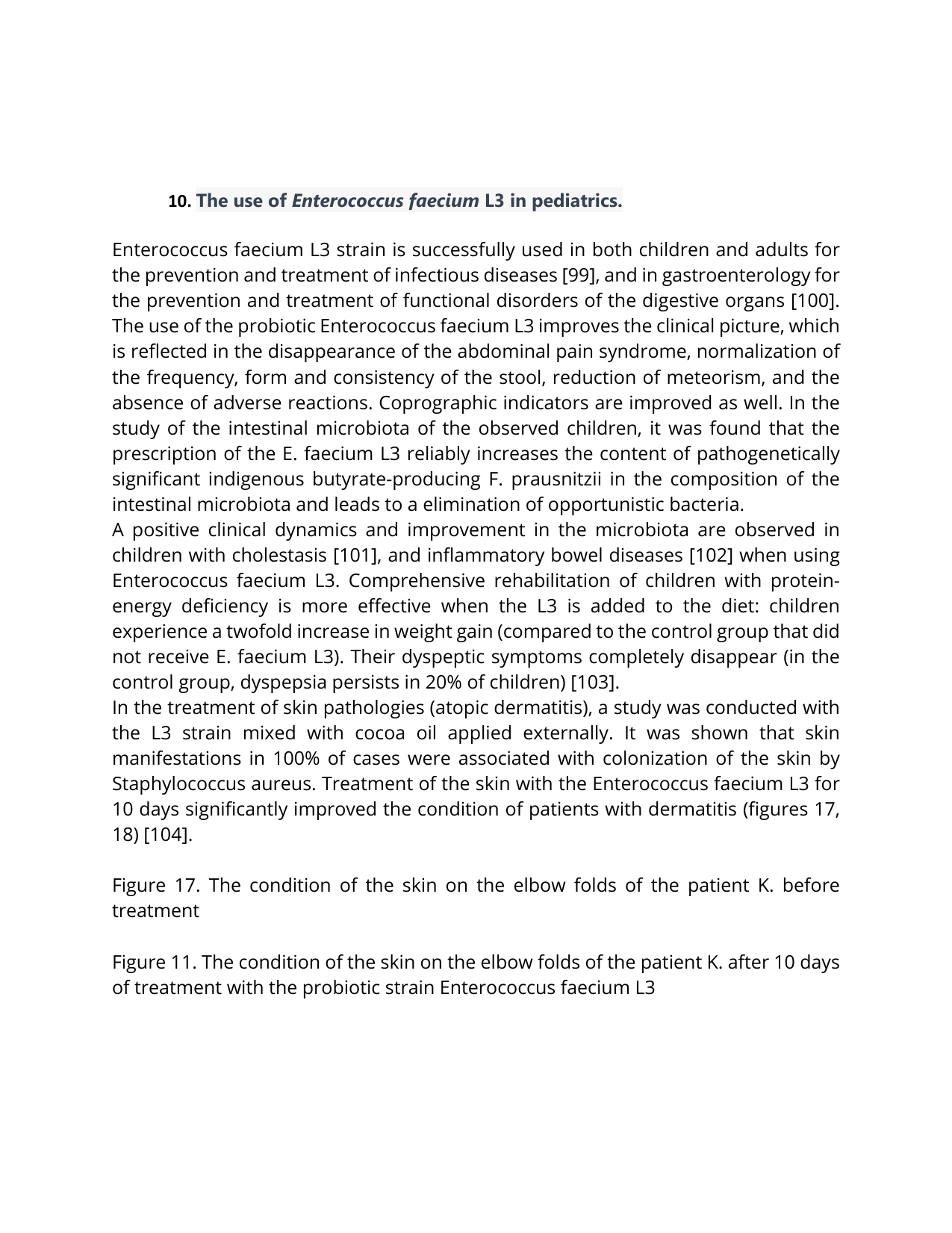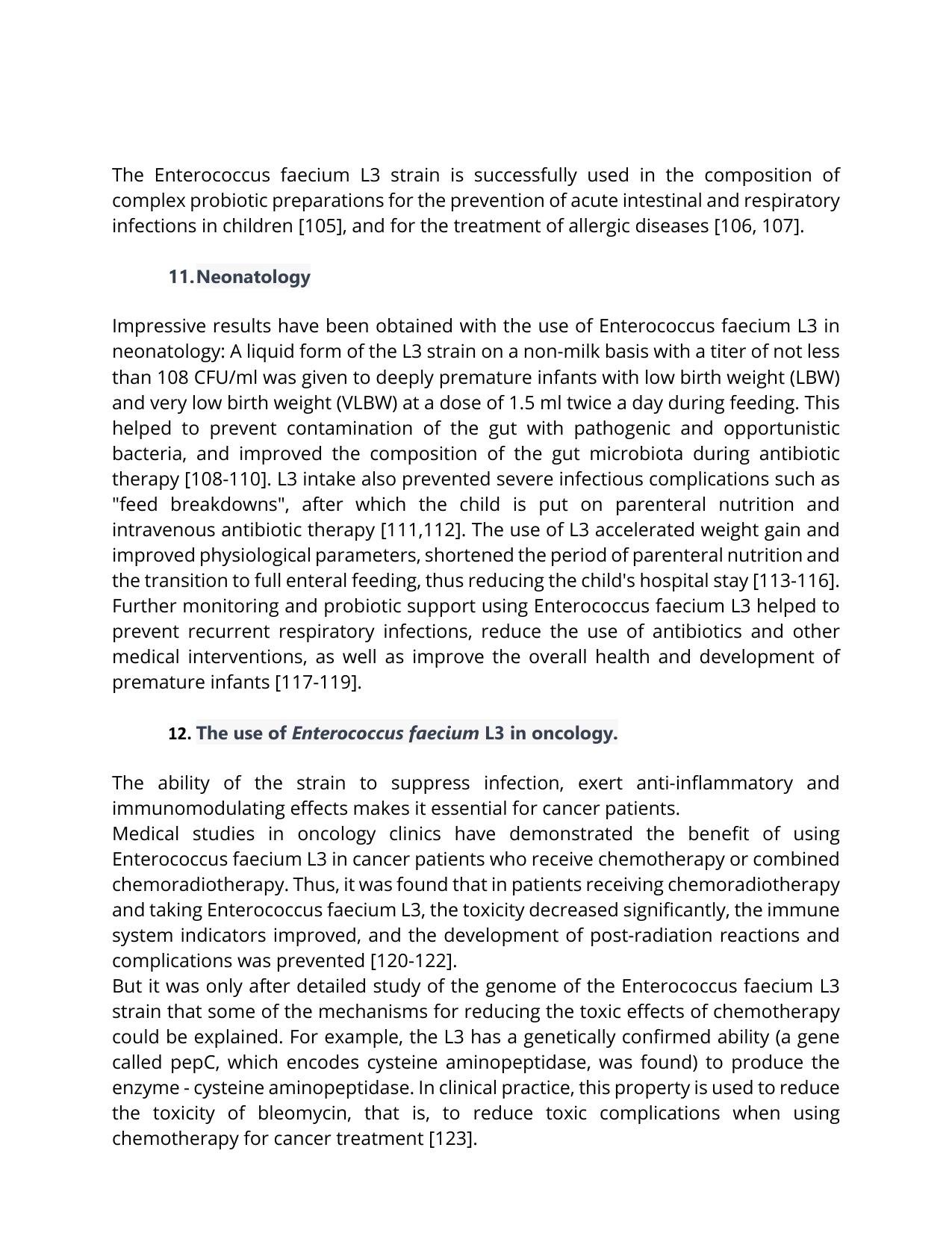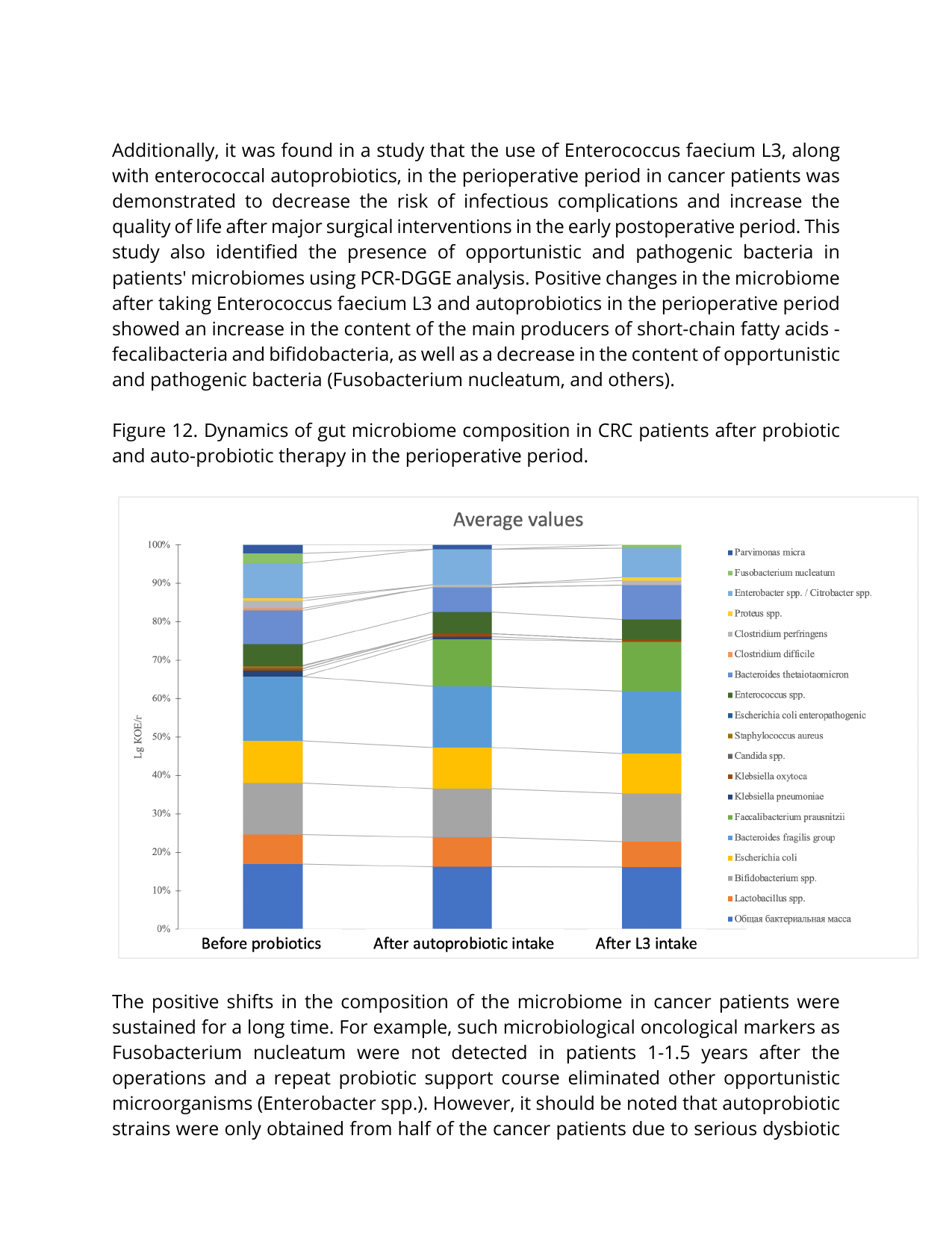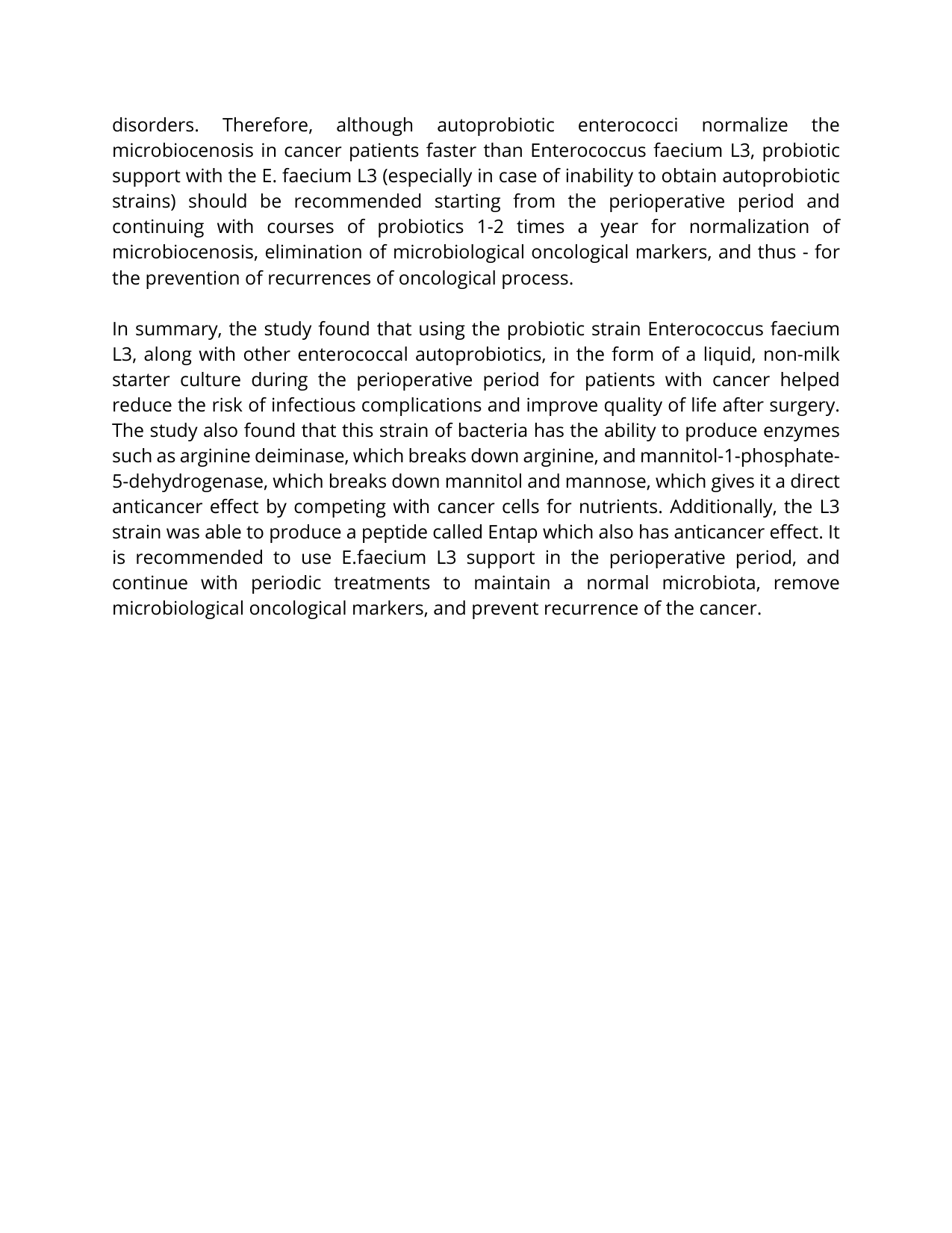Efficacy
- Pathogen inhibition – E. faecium L3 possesses strong antagonistic activity against pathogenic bacteria and viruses due to its production of 5 bacteriocins. L3 efficiently inhibits H. pylori including the most aggressive strains.
- Anti‑inflammatory effect – Studies in vitro and in vivo showed significant anti‑inflammatory action, making L3 a desirable component in comprehensive treatment of IBS/IBD, cardiovascular and gynaecological diseases.
- Immune system modulation – L3 stimulates the synthesis of anti‑inflammatory immune factors, helps in multiple‑sclerosis therapy and prevents allergic and viral diseases.
- Metabolic process improvement – Improves metabolism in chronic liver diseases, IBD, atherosclerosis and diabetes mellitus.
- In healthy populations L3 prevents dysbiosis and can be added to functional foods as an ingredient.
Safety
- L3 has been extensively researched and has its genome 100 % sequenced, showing absence of pathogenic genes. It has a proven safety record in oral supplements, functional foods and vaginal formulations.
- Long‑term clinical use shows multiple beneficial effects with no complications across all ages, including pregnant women and newborns.
Stability
- L3 survives bile and withstands wide temperature and acidity ranges, making it suitable for diverse manufacturing processes.
- It is supplied lyophilised or granulated, water‑soluble, EU‑produced and exported globally without special storage requirements.
Studies
Select a topic to view published research on Enterococcus faecium L3.
Pathogen inhibition
- Dynamics of contamination and persistence of Clostridium difficile in intestinal microbiota in newborn infants during antibiotic therapy and use of probiotic strain Enterococcus faecium L3
- Positive clinical outcomes derived from using a proprietary mixture of selected strains during pregnancy
- Gut Microbiota, Probiotics, and Human Health
- In vivo Testing of Functional Properties of Three Selected Probiotic Strains
- Enterococcus as probiotics – what is the advantage?
- Probiotics at War Against Viruses – What Is Missing From the Picture?
- Enterococcus faecium L-3 in Eradication of Helicobacter pylori – In‑vivo and In‑vitro
- The need for individual selection of probiotics containing lactobacilli and enterococci to improve efficacy therapy for campylobacteriosis
Anti‑inflammatory effect
Immune system modulation
- The influence of probiotic Enterococcus faecium strain L5 on the microbiota and cytokines expression in rats with dysbiosis induced by antibiotics
- In vivo Testing of Functional Properties of Three Selected Probiotic Strains
- The protective effect of Enterococcus faecium L-3 in experimental allergic encephalomyelitis in rats is dose‑dependent
- The need for individual selection of probiotics containing lactobacilli and enterococci to improve efficacy therapy for campylobacteriosis
- Influence of probiotics on cytokine production in the in vitro and in vivo systems
- Modern probiotic functional products in the practice of training athletes
Metabolic process improvement
- Modern probiotic functional products in the practice of training athletes
- Trophological status and quality of life in infants administered probiotic enterococci
- The protective effect of Enterococcus faecium L-3 in experimental allergic encephalomyelitis in rats is dose‑dependent
- Glucose absorption and digestive enzyme activities in the type 2 diabetic rats after administration of metformin and probiotic strain of Enterococcus faecium L3
Digestion & Dysbiosis
- The influence of probiotic Enterococcus faecium strain L5 on the microbiota and cytokines expression in rats with dysbiosis induced by antibiotics
- Gut Microbiota, Probiotics, and Human Health
- Impact of a two‑bacterial‑strain formula, containing Bifidobacterium animalis lactis BB‑12 and Enterococcus faecium L3, administered before and after therapy for Helicobacter pylori eradication
- Irritable bowel syndrome therapy in Vietnam
H. pylori
- Enterococcus faecium L-3 in Eradication of Helicobacter pylori – In‑vivo and In‑vitro
- Gut Microbiota, Probiotics, and Human Health
- Impact of a two‑bacterial‑strain formula, containing Bifidobacterium animalis lactis BB‑12 and Enterococcus faecium L3, administered before and after therapy for Helicobacter pylori eradication
Anti‑allergy
- Terapia batterica razionale ed evidenze in ambito allergologico
- Treatment with a Probiotic Mixture Containing Bifidobacterium animalis Subsp. Lactis BB12 and Enterococcus faecium L3 for the Prevention of Allergic Rhinitis Symptoms in Children
- Use of a probiotic mixture containing Bifidobacterium animalis subsp. lactis BB12 and Enterococcus faecium L3 in atopic children
Children’s health
- Dynamics of contamination and persistence of Clostridium difficile in intestinal microbiota in newborn infants during antibiotic therapy and use of probiotic strain Enterococcus faecium L3
- Use of a probiotic mixture containing Bifidobacterium animalis subsp. lactis BB12 and Enterococcus faecium L3 in atopic children
- Treatment with a Probiotic Mixture Containing Bifidobacterium animalis Subsp. Lactis BB12 and Enterococcus faecium L3 for the Prevention of Allergic Rhinitis Symptoms in Children
- Use of a probiotic mixture containing Bifidobacterium animalis subsp. lactis BB‑12 and Enterococcus faecium L3 as prophylaxis to reduce the incidence of acute gastroenteritis and upper respiratory tract infections in children
- Trophological status and quality of life in infants administered probiotic enterococci
Women’s health
E. faecium L3 during antibiotic treatment
- The influence of probiotic Enterococcus faecium strain L5 on the microbiota and cytokines expression in rats with dysbiosis induced by antibiotics
- Impact of a two‑bacterial‑strain formula, containing Bifidobacterium animalis lactis BB‑12 and Enterococcus faecium L3, administered before and after therapy for Helicobacter pylori eradication
- Dynamics of contamination and persistence of Clostridium difficile in intestinal microbiota in newborn infants during antibiotic therapy and use of probiotic strain Enterococcus faecium L3
Science
